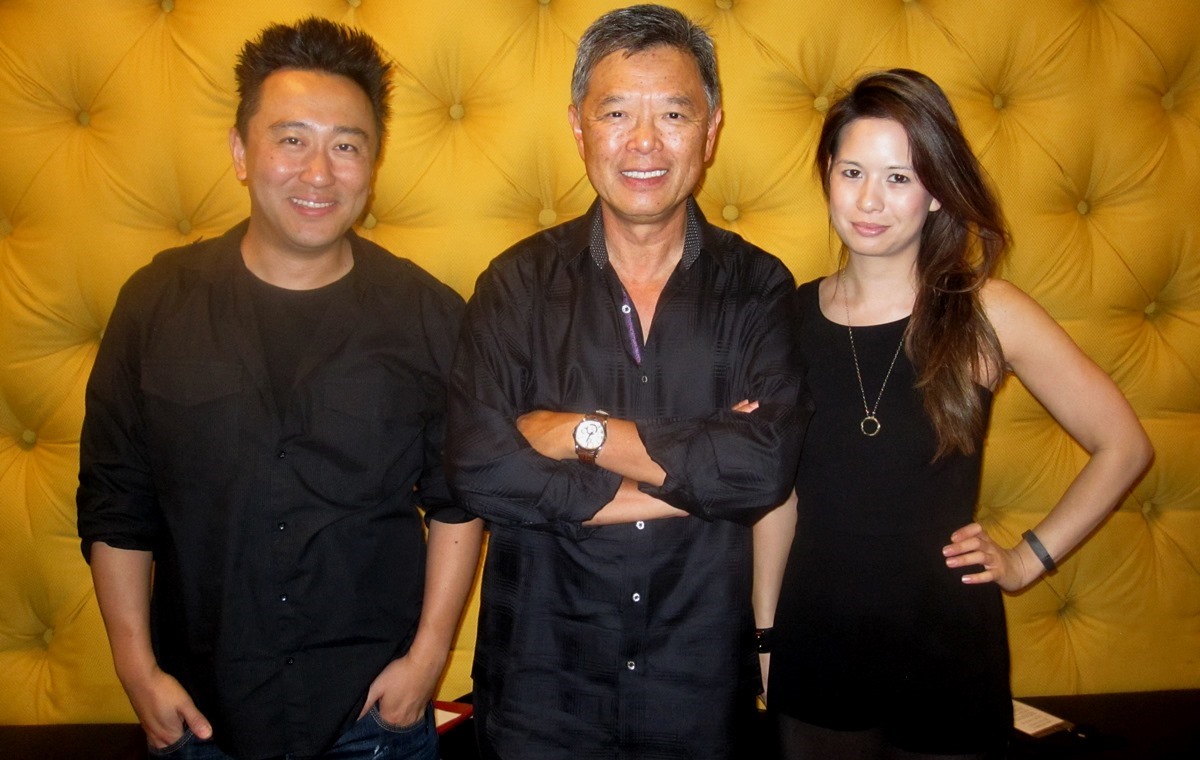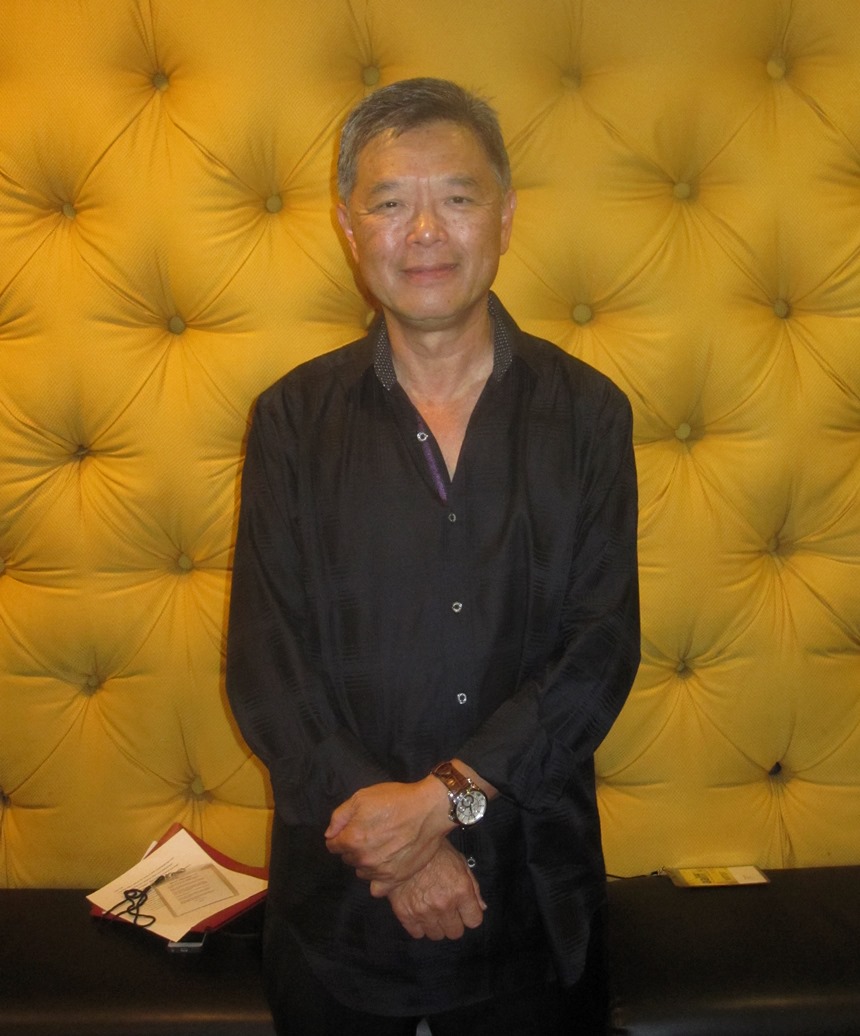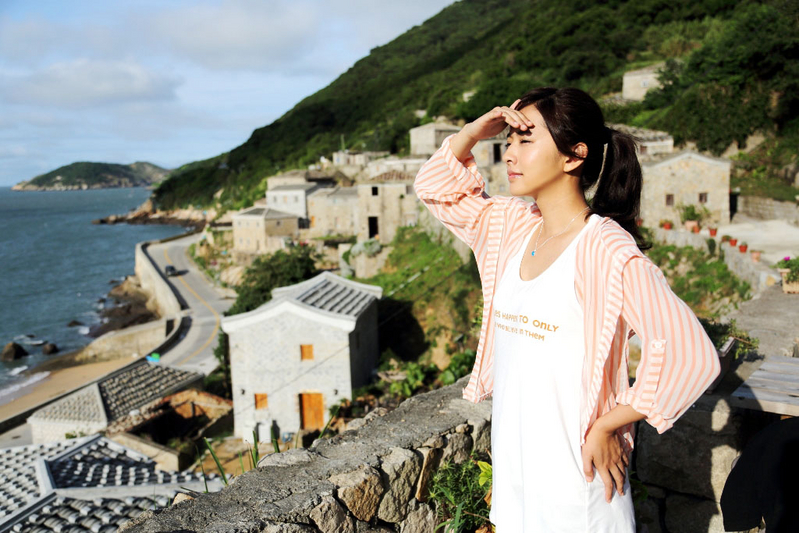By Kevin Young
Established Chinese-American director Henry Chan has directed Moesha, Scrubs, The King of Queens, Lizzy Mcguire and many other popular American television shows. Chan with the help of his trusted producers Weiko Lin, and Stacy Fan, adds the Taiwanese romantic-comedy motion picture 100 Days to his filmography. Chan sat down with us accompanied by his producers to discuss 100 Days before its New York City premiere through the 37th annual Asian American International Film Festival (AAIFF).
Why did you pursue a career as a director?
HC: I actually tried pursuing law and engineering like everyone else in my generation. It didn’t work. My mom always encouraged me to become a doctor but that didn’t work. I graduated with a theater degree without telling my parents. They were in Hong Kong so they didn’t know. I loved theater and at the time I thought maybe it was an irrational choice to go into this field but if I continued in medical school or engineering school, I wouldn’t be able to face myself.
Can you introduce what the film is about? And how does it feel to have your film screened in New York?
HC: We did the film about a year ago and this is a Taiwanese film. It’s about people going home. Our protagonist is actually supposed to go to America spending years there and then comes back to Taiwan. One of our main audiences are Chinese Americans. People like myself and Weiko. Weiko came when he was 8 and I came when I was 18. But all this time while living in America there was always something tugging at us. It’s going home. So to have a movie being shown in NY where I got my masters from Brooklyn College is great. It’s a homecoming for me. I came here over 30 years ago. I have a lot of friends here and they are all coming out to see the movie. I actually ran out of tickets so I don’t know how to face them when they show up tonight.
WL: Even friends he went to film school with are coming here.
How did you transition from directing American television to directing an international production?
HC: First of all I did a lot of television directing. Scrubs, Moesha, The King of Queens but television in general is a writers medium. It’s the writer who creates the characters. It’s the writer who writes the script and the writer who oversees everything. They are the showrunners. My job as a director is to complete his or her vision. It’s not my vision but there is nothing wrong with that. It’s not my story. But what happened to our stories? Our voices?
WL: We weren’t born here in America. We aren’t ABCs (American Born Chinese) I’m sure that’s a different experience. Chinese is a big part of our foundation so to be able to tell a story in our own language means the world to us! Stacy is half Hong Kong Chinese and half English. She grew up for 6 years in Hong Kong and then went to England. To come back and do something that has to do with her culture it’s a real homecoming for her. Well it’s a real homecoming for all of us.
HC: I have a lot of tradition going back. My mandarin sucks it’s terrible! But what I realized when we started working, we all spoke a film language. A performance language. Motivation is motivation. Subtext is subtext. The relationship between a director and an actor is the same thing in Taiwan and America. There is no difference. Everything is really similar. Think about it this way, film started off with no sound. It didn’t matter right? So it’s about the performance and by not understanding the language at times, it was even better because then I could concentrate on the performance of the actors.
100 Days had a lot of comedic moments. What was the most fun scene to shoot and the hardest scene to shoot?
HC: Sex scenes are usually fun. (Everyone laughs) When someone is naked we enjoy it and we do many takes the crew loves it. I’m just joking. Actually in one of the scenes my leading actor has to be “naked” but of course he really wasn’t. In all modesty we had to ask ourselves how do we shoot this scene without it being too racy? It’s a fun thing to do. As for the hardest scene there was one scene we shot at night. It was the welcoming dinner of when the protagonist arrives back home and it rained like hell. Everyone was drenched.
WL: it was supposed to be dry for the welcoming dinner scene and it was raining so we had to spend a lot of time on this scene.
HC: At first I was like it’s not so bad because the rain made the footage look better because of the reflection at night. But it just rained so hard we waited for like 20 minutes and every time it would slow down I would yell it’s stopping go out shoot shoot. The rain was horrible it covered the food. We actually had to cut several scenes because the actors were so wet that they looked ridiculous.
What type of audience is 100 Days trying to target?
HC: Well since it’s a story it’s very universal especially to an American audience. A lot of us are from Taiwan. I always felt like we are the people that get lost in the middle we aren’t all Chinese we aren’t all American. These lost people are our audience. Because this is the story of going home. It’s a film that’s not just for Chinese Americans it applies to Japanese and Korean Americans too. The experience of growing up and leaving home is not limited to only Asian Americans. It could be a guy from Minnesota coming to New York to work who tries to make it and then go home. It’s the same experience.
What was the casting protocol?
SF: It was never about getting a big name.
HC: We auditioned everyone and had them come in and read. Once we picked people we put them together because we need them to have chemistry together. We can’t cast someone if they can only act well alone. Another thing is that Stacy doesn’t speak Chinese. So she was able to just solely focus on the performance. She can nail and zero in on the performance aside from the dialogue. And she’s actually the better judge.
S: I wasn’t swayed by the words or meaning. I relied on their body language and facial expressions to communicate what was going on. Since I didn’t understand what the actors were saying, if they could impress me I knew they were good.
WL: We all had to agree on someone to cast them.
What’s the message viewers should take away after watching the film?
HC: The message people should realize is that family and face to face communication are important. Some people get caught up with work saying to themselves I wanna be successful, I want to get a promotion. But they forget what really is important, the love for your family. It’s a bit old fashioned. I hope the movie touches people because that’s what a good film does. Right? For them to have some type of resonance and to enjoy it. And more importantly enjoy what you have. Sometimes we are too focused on achieving something we forget what is around us. Just like my main character he forgot that he has a beautiful home and a strong relationship with his mother that he ignored and he forgot about his relationship with his first love. We overlook these things and sadly forget them. Sometimes it’s important to go back to your roots and take a good look in the mirror and realize what made you who you are.
Any tips for future kids who want to become directors?
WL: As a kid I would say to myself, “who is Asian and directing?” The only Asian I ever saw was Henry. As a kid for me watching television it was like wow that’s cool, there’s a Chinese person directing. I then thought there was a possibility that I could become a director too. Henry has been an inspiration to the Los Angeles community and he serves as a mentor to many aspiring film directors. Especially the Asian Americans. He reaches out to them and says “Hey If I could do it you could too!”
HC: It’s true because I can barely speak English and if I could do it as a fresh off the boat immigrant just think of what Asian-Americans today could do. They have to believe in themselves and take a chance.




Leave a Reply